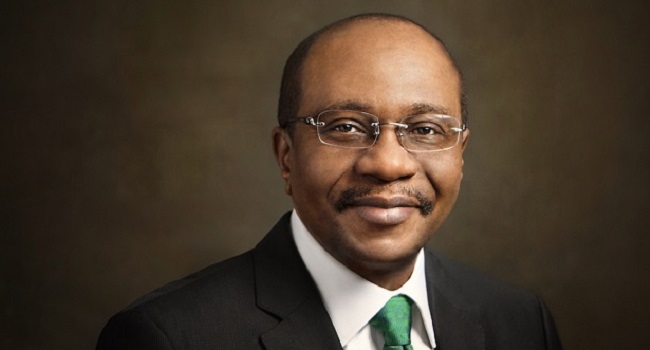Business
CBN MPC holds interest rate at 11.5%, retains other parameters to sustain growth

The Central Bank Nigeria (CBN), rising from its 276th Monetary Policy Committee (MPC) meeting on Tuesday, retained the benchmark interest rate, at which it lends to commercial, at 11.75%, while also holding other key monetary policy parameters to support growth as the Nigerian economy seeks the way out of recession.
In September when it last met, the MPC had undertook a rate cut of 100 basis points to 11.5%.
The Governor of Central Bank of Nigeria, Godwin Emefiele, who disclosed this to journalists at the end of a virtual meeting in Abuja, said the 10-member panel unanimously resolved to maintain the rate.
The rate retention, which came after two downward reviews (each by 100 basis points) so far this year, implies that the regulator anticipates Nigeria’s second recession in four years would last for just a while, affirming the view of Minister of Finance, Budget and National Planning, Zainab Ahmed, who on Monday said the economy would return to growth this quarter or, at most, the first quarter of next year.
The CBN governor said keeping the rates at current levels “will allow current policy measures to permeate the economy.”
READ ALSO: CBN MPC Retains Lending Rate to Banks at 12.5%
The lockdown imposed by the government in April to curb the spread of COVID-19 and the record oil crash affected Nigeria more than most economies on the continent.
This, alongside the land border closure that government ordered last August to suppress smuggling and accelerate self-sufficiency, has had adverse implications for exports and availability of food items, worsening inflation.
“Much as inflation has stayed above CBN’s target range of between 6 percent and 9 percent for over half a decade, and shot higher for the 14th month in a row in October, it should start abating in the medium term,” the MPC said.
The panel retained the cash reserve ratio at 27.5 percent, the liquidity ratio at 30 percent and the asymmetric corridor, suggesting that the cost at which banks borrow is 100 basis points or 1 percent above the monetary policy rate while the yield on their deposits is 700 basis points or 7 percent below the benchmark.
Join the conversation
Support Ripples Nigeria, hold up solutions journalism
Balanced, fearless journalism driven by data comes at huge financial costs.
As a media platform, we hold leadership accountable and will not trade the right to press freedom and free speech for a piece of cake.
If you like what we do, and are ready to uphold solutions journalism, kindly donate to the Ripples Nigeria cause.
Your support would help to ensure that citizens and institutions continue to have free access to credible and reliable information for societal development.




















